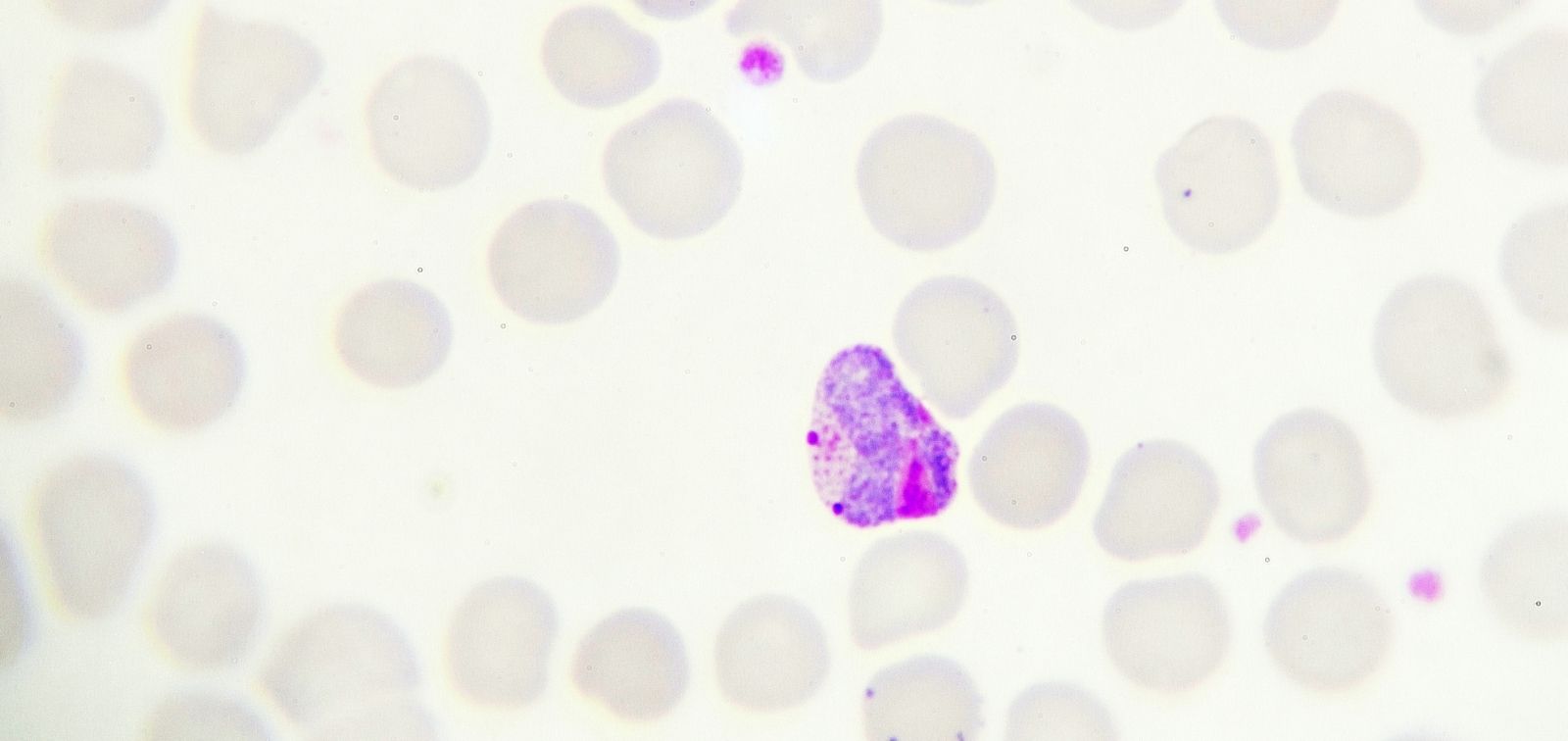GlycoTargets
New antimalarial therapies targeting the glycosylation pathways of ‘Plasmodium falciparum’

- Duration
- 01/09/2024 - 31/08/2026
- Coordinator
- Luis Izquierdo Lázaro
- Funded by
- Ministry of Science and Innovation - Agencia Estatal de Investigación
Malaria is a serious global health problem that kills more than 600,000 people a year —mainly children under five and pregnant women in sub-Saharan Africa— with the Plasmodium falciparum parasite causing the most severe form of the disease and the highest number of deaths.
It should be noted that malaria is a preventable and curable disease, and artemisinin-based combination therapies are one of the main tools for its control. However, the extraordinary metabolic plasticity of P. falciparum makes it susceptible to developing resistance to any treatment that is discovered. Indeed, artemisinin resistance is beginning to emerge in the Greater Mekong Subregion, underscoring the urgent need to develop new tools and therapies to combat the disease.
Recent results from the Glycobiology and Malaria Parasite Biology Group and other research groups confirm that glycoconjugates play a key role in the development of P. falciparum. Indeed, the parasite appears to be particularly sensitive to disruption of these glycosylation mechanisms, according to data from several sources. We hypothesise that certain glycosylation pathways, namely the hexosamine biosynthesis pathway (HBP), glycosylphosphatidylinositol (GPI) biosynthesis and N-glycosylation, may be excellent unexplored targets for the development of new strategies to halt parasite growth.
BPH is a lateral pathway of glycolysis that generates uridine diphosphate-N-acetylglucosamine (UDP-GlcNAc), a nucleotide sugar essential for asexual parasite development and involved in the biosynthesis of GPI anchors and N-glycans. GPIs are the most prominent form of protein glycosylation in P. falciparum and anchor essential proteins to the parasite surface during different stages of its life cycle. Finally, N-glycosylation is an essential process in most eukaryotes that takes place in the endoplasmic reticulum and modulates the folding, stability, trafficking and function of proteins expressed in the secretory pathway.
Our recent results indicate that N-glycosylation is active and essential for the survival of P. falciparum in its intraerythrocytic asexual stages. Surprisingly, parasites with altered N-glycosylation show a peculiar 'delayed death' phenotype, in which they do not stop replicating until the second cycle after the alteration. Notably, delayed death has previously been described in P. falciparum in association with apicoplast-targeted inhibitors. The unexpected relationship between N-glycosylation and delayed death raises interesting new questions that deserve further investigation due to their importance for parasite biology and survival.
In this proposal, we will use virtual screening based on 3D structure predictions and CRISPR-Cas9-mediated genetic engineering to chemically and genetically validate the three above-mentioned pathways as drug targets for the design of novel antimalarial drugs. We propose to focus on the identification of new compounds capable of arresting parasite growth by inhibiting these pathways. In summary, we will adopt a basic research approach with the aim of identifying urgently needed molecules capable of eliminating the malaria parasite through novel mechanisms of action.
Total funding
247,500.00 €
Funded by the Ministry of Science and Innovation - State Research Agency. Reference: PID2022-137031OB-I00 Call: Knowledge Generation Projects.

Our Team
Coordinator
-
LUIS IZQUIERDO LAZARO
ISGlobal Team
-
 Maria Pia Alberione Predoctoral Researcher
Maria Pia Alberione Predoctoral Researcher -
ANGEL FENOLLAR COLLADO
-
Jonathan Ortega Laboratory Technician
-
MIRIAM RAMIREZ MORENO
-
Tais Romero Predoctoral Researcher




